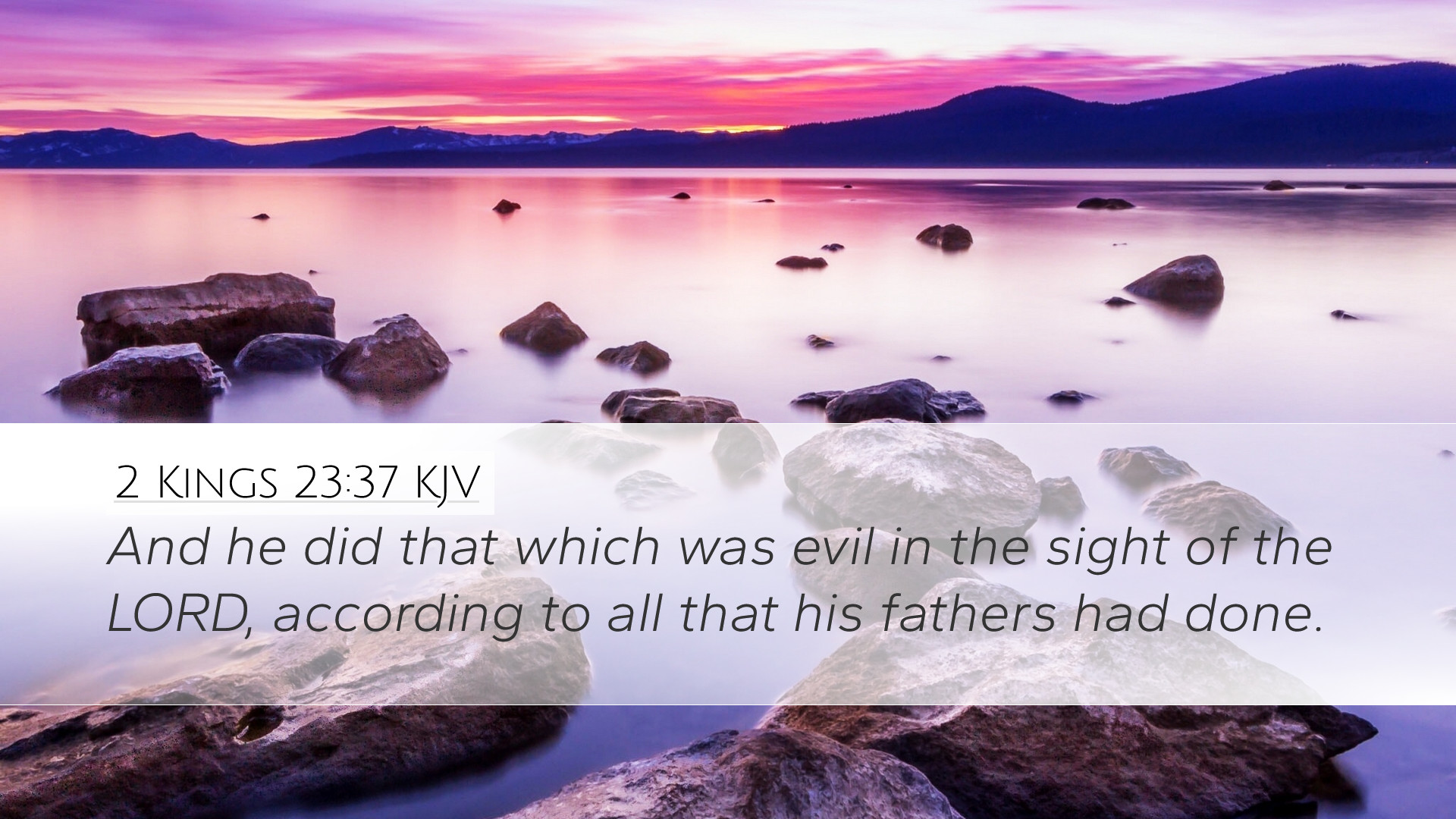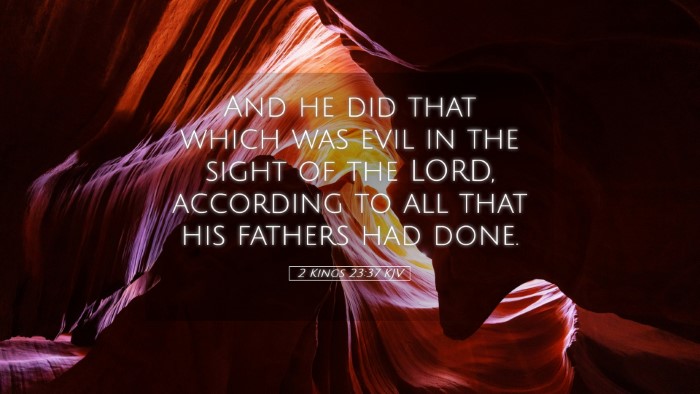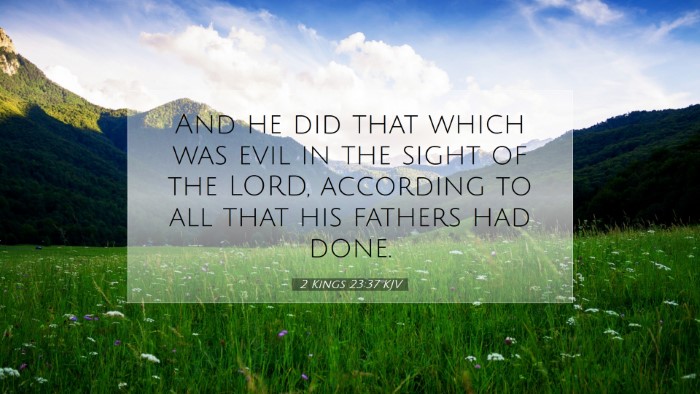Commentary on 2 Kings 23:37
Verse: "And he did that which was evil in the sight of the LORD, according to all that his fathers had done."
Introduction
This verse concludes the accounts of the reign of King Jehoahaz, the son of Josiah. His actions marked a significant departure from the reforms established by his father, Josiah, who was known for his commitment to the worship of the LORD and the eradication of idolatry. The commentary here draws upon insights from esteemed public domain theologians to deepen our understanding of this critical moment in Israel's history.
Historical Context
The narrative surrounding Jehoahaz’s reign comes on the heels of a great revival under Josiah. While Josiah made significant strides towards restoring true worship, Jehoahaz’s actions reveal the fragile nature of such reforms. His wickedness is a stark reminder of how quickly a nation can revert to sin and disobedience when leadership fails to adhere to God’s commandments.
Insights from Matthew Henry
According to Matthew Henry, this passage underscores the theme of continuity in Israel's history; even after a godly king, the potential for evil remained. Henry notes:
- The nature of human sin is such that it often perpetuates through generations.
- Jehoahaz's reign serves as a cautionary tale about the need for vigilant leadership.
- Divine judgment often follows unfaithfulness, as evidenced by the immediate consequences faced by Israel after Josiah's death.
Insights from Albert Barnes
Albert Barnes highlights the theological implications of Jehoahaz's actions. He emphasizes:
- The phrase "did that which was evil in the sight of the LORD" speaks to the severity of sin from a divine perspective.
- Barnes explains that the disobedience of the king directly correlates with the nation's spiritual state, suggesting that the moral character of leaders impacts the whole community.
- This verse sets the stage for future calamities faced by Israel, as leaders who reject God’s ways lead their nations into destruction.
Insights from Adam Clarke
Adam Clarke provides a pastoral perspective on the text, noting the profound implications of Jehoahaz’s evil deeds. His observations include:
- The significance of parental influence is evident, as Jehoahaz followed in the footsteps of his predecessors who had turned away from God.
- Clarke warns about the heavy responsibilities borne by those in positions of authority—both in temporal and spiritual realms.
- The enduring truth that national character reflects the character of its leaders; the failures of Jehoahaz resulted in greater societal woes.
Contemporary Application
This verse serves as a stark reminder to contemporary leaders within the church and community. The lessons learned from Jehoahaz's reign prompt us to consider:
- Leadership and Integrity: Those in positions of authority must prioritize faithfulness to God above all else. The moral compass established by leaders has a cascading effect on those they govern.
- Legacy of Faith: The repercussions of a leader's choices can reverberate through generations. Faithfulness to God can foster a legacy of righteousness, while disobedience ensures a cycle of despair and judgment.
- Importance of Reflection: Leaders and faithful followers alike must regularly reflect on their actions and choices in light of scripture, seeking to align with God’s will and thrust aside any evil.
Conclusion
2 Kings 23:37 encapsulates a pivotal moment in Israel's history that illustrates the tension between righteous leadership and moral failure. The insights drawn from Matthew Henry, Albert Barnes, and Adam Clarke provide a rich tapestry of theological, historical, and practical applications. As we reflect on this text, let us be mindful of the call to lead lives that honor God, impacting not just the present but also shaping the future for coming generations.


